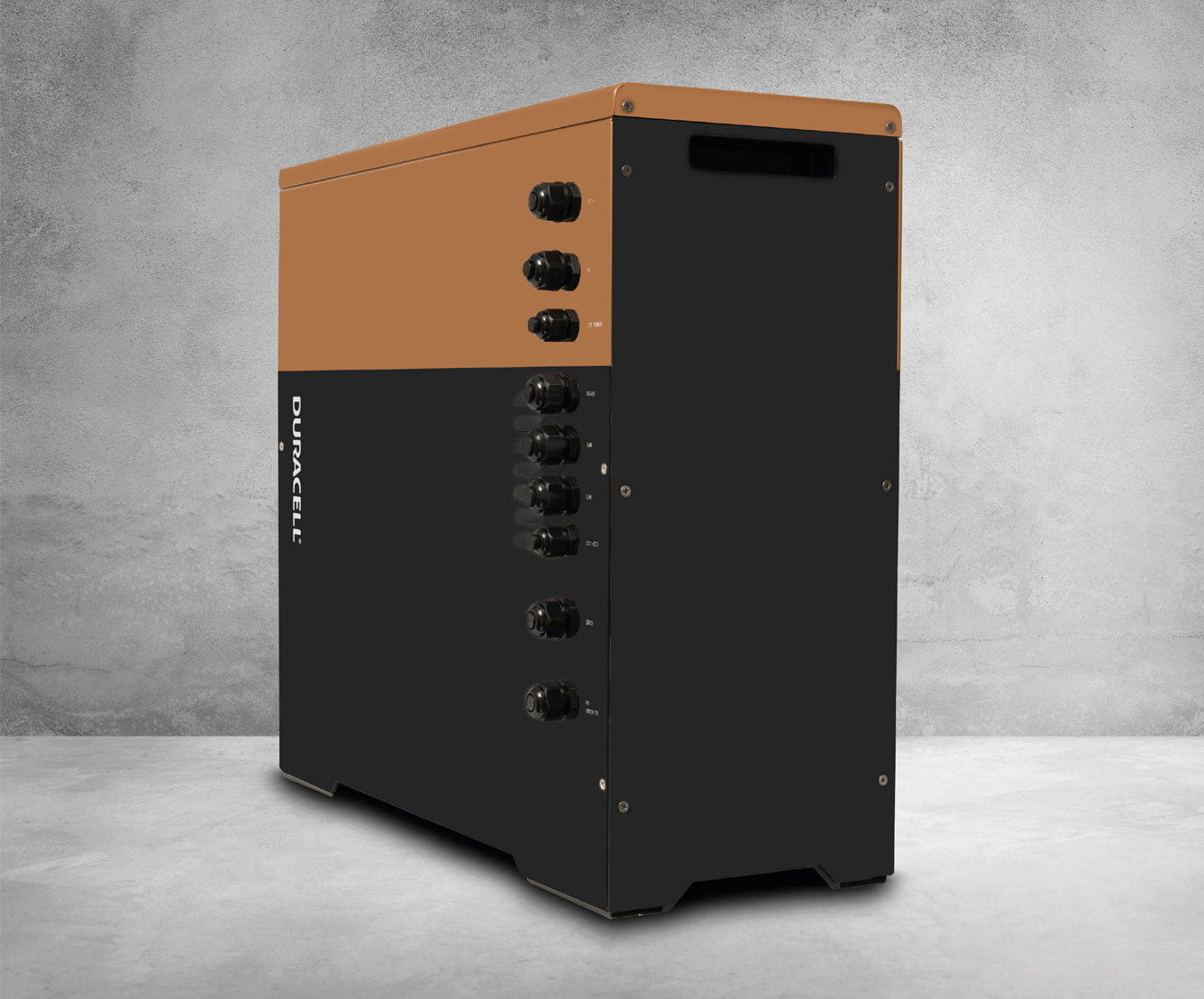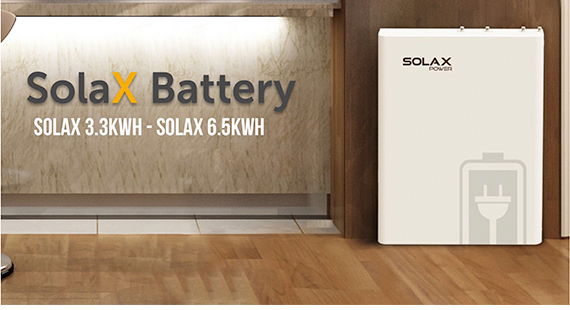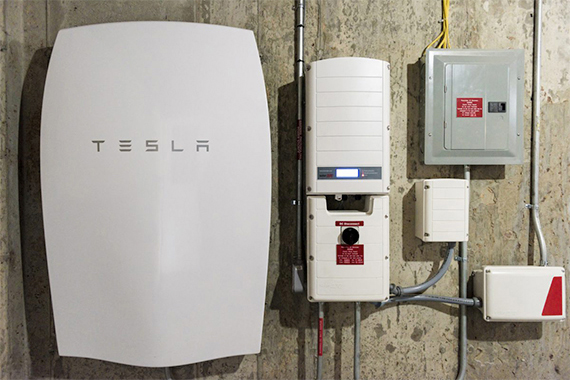
Solar Batteries – The Evolution of Your Storage System
Some of the major contributors to solar battery costs are the chemical materials that make up the battery, the life cycle of the battery, the storage capacity, and the usable capacity. These factors can cause the storage system costs in the UK to typically range between £1,200 and £12,000.
Also, considering that a solar battery storage system’s lifespan lasts 5 to 15 years, the battery may have to be replaced several times over the lifespan of your solar panels (typically 15-30 years), increasing your annual costs. Suffice it to say, solar battery storage system costs are not inexpensive, but the advantages of having one can more than make up for the cost if implemented effectively.
If you would like to enjoy the convenience provided by solar battery storage systems, fill in the form above to get up to 4 tailor-made quotes from our trusted solar battery suppliers and installers. This service is offered free of charge and without any obligations.
Why Do You Need a Solar Battery Storage System?
Coupling solar batteries with solar arrays is a relatively new practice on the domestic market. The advantage of doing so is four-fold. First, a solar battery stores the energy generated during sunlight hours and makes it readily available for use during non-production hours, such as at night or on cloudy days, essentially enabling your home to run on 100% renewable solar energy around the clock, as long as electricity demand does not exceed the supply that the battery can provide.
Second, a solar battery storage system can lower your energy costs significantly. By charging the solar battery during off-peak hours and discharging it during peak hours, you can avoid paying a lot for electricity from your utility company. The savings from this can serve towards reducing your battery system costs.
Third, you can earn money by selling the energy stored in your solar battery back to the electrical grid when electricity prices are at their highest—this is through the Social Energy virtual power plant network.
Fourth, by adding a solar panel battery to your solar system, you can choose to be independent from the national grid at any time, thereby ensuring energy security for your household.


When Is It Ideal to Install One?
A solar battery storage system is best used in combination with a solar PV array. Lucky, if you already have an existing array, it is a relatively simple task to add a solar battery into the mix. And if you have neither, the two systems can be bought in tandem to make your home run entirely on renewable energy.
The two technologies complement each other to bring down your storage system costs by making your solar panel array vastly more efficient. If you have been considering going green, there is no better time to start taking advantage of the money you can save on your monthly electricity bill.
Solar battery storage systems offer a variety of types of batteries for you to choose from, along with many advantages, like more eco-friendly efficiency, longer lifespan, and easier installation.
How Much Does a Solar Battery Storage System Cost?
Currently, the costs typically range between £1,200 and £12,000 depending on the capacity, chemical composite of battery, and its life cycle.
Solar battery costs are in a similar situation like when the technology for solar panels was new. As the adoption of solar battery storage systems becomes more widespread, their price will naturally follow the same declining trend as solar panel costs.
Lithium-ion solar batteries are the most mainstream and cost-effective batteries of all kinds. The table below provides a rundown of lithium-ion costs based on usable capacity.


Solar Batteries – The Evolution of Your Storage System
Some of the major contributors to solar battery costs are the chemical materials that make up the battery, the life cycle of the battery, the storage capacity, and the usable capacity. These factors can cause the storage system costs in the UK to typically range between £1,200 and £6,000.
Also, considering that a solar battery storage system’s lifespan lasts 5 to 15 years, the battery may have to be replaced several times over the lifespan of your solar panels (typically 15-30 years), increasing your annual costs. Suffice it to say, solar battery storage system costs are not inexpensive, but the advantages of having one can more than make up for the cost if implemented effectively.
If you would like to enjoy the convenience provided by solar battery storage systems, fill in the form above to get up to 4 tailor-made quotes from our trusted solar battery suppliers and installers. This service is offered free of charge and without any obligations.
Why Do You Need a Solar Battery Storage System?
Coupling solar batteries with solar arrays is a relatively new practice. The advantage of doing so is four-fold. First, a solar battery stores the energy generated during sunlight hours and makes it readily available for use during non-production hours, such as at night or on cloudy days, essentially enabling your home to run on 100% renewable solar energy around the clock, as long as electricity demand does not exceed the supply that the battery can provide.
Second, a solar battery storage system can lower your energy costs significantly. By charging the solar battery during off-peak hours and discharging it during peak hours, you can avoid paying a lot for electricity from your utility company. The savings from this can serve towards reducing your battery system costs.
Third, you can earn money by selling the energy stored in your solar battery back to the electrical grid when electricity prices are at their highest—if your utility allows net metering.
Fourth, by adding a solar panel battery to your solar system, you can choose to be independent from the national grid at any time, thereby ensuring energy security for your household.


When Is It Ideal to Install One?
A solar battery storage system is best used in combination with a solar PV array. Lucky, if you already have an existing array, it is a relatively simple task to add a solar battery into the mix. And if you have neither, the two systems can be bought in tandem to make your home run entirely on renewable energy.
The two technologies complement each other to bring down your storage system costs by making your solar panel array vastly more efficient. If you have been considering going green, there is no better time to start taking advantage of the money you can save on your monthly electricity bill.
Solar battery storage systems offer a variety of types of batteries for you to choose from, along with many advantages, like more eco-friendly efficiency, longer lifespan, and easier installation.
How Much Does a Solar Battery Storage System Cost?
Currently, the costs typically range between £1,200 and £12,000 depending on the capacity, chemical composite of battery, and its life cycle.
Solar battery costs are in a similar situation like when the technology for solar panels was new. As the adoption of solar battery storage systems becomes more widespread, their price will naturally follow the same declining trend as solar panel costs.
Lithium-ion solar batteries are the most mainstream and cost-effective batteries of all kinds. The table below provides a rundown of lithium-ion costs based on usable capacity.

| Usable Capacity (kWh) | Estimated Price (Lithium-Ion Batteries) |
|---|---|
| 3 – 4 kWh | From £4,410 |
| 4 – 7 kWh | From £6,288 |
| 7 – 9 kWh | From £8,185 |
| 9 – 13.5 kWh | From £10,920 |
| Characteristics | Lead-Acid Battery | Lithium-Ion Battery |
|---|---|---|
| Preliminary Cost | £3,500 | £7,000 |
| Storage Capacity (kWh) | 4 kWh | 4 kWh |
| Depth of Discharge (DoD) | 50% | 90% |
| Life Cycle | 1,800 | 8,000 |
| Cost / kWh / Cycle* | £1.944 | £0.875 |
Battery Material
Different materials have different impacts on the discharge rate and the lifespan of the product. For example, lithium-ion batteries can discharge 70%-90% of the total amount of storage while lead-acid can only discharge around 50%. And lithium-ion batteries have at least double the lifespan of lead-acid batteries. Higher discharge rate and longer lifespan will typically results in higher prices.
Capacity
Storage capacity refers to the total amount of energy your solar battery can store, and usable capacity means the amount one can use, which is usually calculated by depth of discharge (DoD).
The amount of storage capacity and usable capacity, measured in kilowatt hours (kWh), directly influences how much your solar battery storage system will cost. Larger capacity means it can store more energy and support a larger area, thus, it will result in a higher price.
Lifespan
The life cycle is an important indicator of a solar battery storage system’s lifespan. The more cycles a solar battery can provide, the longer time it can perform normally. Considering the lifespan of solar panels is around 25 years, replacing a new solar battery may add up to the future costs.
Installation
Installation cost of solar battery storage systems varies slightly based on the size and may be covered by some brands. Generally speaking, it is more economical to set up your solar battery system while installing solar panels.
Types of Solar Batteries
- RV/ Marine Solar batteries – Marine solar batteries are suitable for smaller systems and are used for boats and by people who own RV’s. In addition, these types of solar batteries work best when no other form of electricity can be produced, due to their lower capacity for continuous service.
- Flooded type – Flooded type batteries are lead acid batteries which have caps for adding water. These types of batteries are not very expensive to buy and have a good life span compared to the Marine solar batteries. It is recommended that flooded type batteries be used outdoors, as they emit gas when charged. If however, these are installed inside, then it is strongly recommended that a venting system should be used to vent out gases, which can be explosive and toxic.
- Gel – As opposed to the flooded type, sealed gel batteries have no vents and do not release gases. Because of this, venting is not important and these batteries can be used indoors without any risks The advantage of this is that the battery will have a more constant temperature indoors, leading to an increase in the maintenance, and therefore performing better than the flooded type.
- Absorbed Glass Mat batteries (AGM) – A glass mat is used between the plates to hold the electrolyte. These type of batteries are leak proof which means that they do not release gas when charging. In addition to this, Glass Mat batteries also have a superior performance, making them the best types of batteries. They have all the advantages of the sealed gel types but are of higher quality. Other advantages include the fact that they maintain voltage better, they self-discharge slower and finally they last longer. Of course, their superiority does mean that they are the most expensive out of the four types.
What Is the Lifespan of a Solar Battery?
The average lifespan of a solar battery storage system is around 5 to 7.5 years for lead-acid and 11-15 years for lithium-ion batteries. However, all batteries are vulnerable if they are over-discharged or exposed to extreme weather.
Depth of Discharge (DoD)
DoD means how much you can use the battery before recharging it. Just as it may be harmful for your phone’s battery to have only 2% remaining, the same goes for a solar battery storage system.
If you use up 100% of its charge or exceed its DoD limit before recharging it, the lifespan will be shortened significantly. For example, if you buy a solar battery storage system that has a capacity of 5 kW energy storage and 80% DoD, remember to charge it before using up the entire 4 kW in order to extend the life of the battery.
Compared with lead-acid batteries, lithium-ion batteries can handle a larger range of temperature changes and feature a higher tolerance level if discharged improperly. These advantages lead to lithium-ion batteries gaining a larger market share.
Would You Like to Invest in a Solar Battery Storage System?
A decent solar battery storage system can make your life better and save you from further unnecessary costs. In the table below you can find a list of popular solar panel battery brands.
| Brand | Usable Capacity (kWh) | Cost | Battery Material | Warranty | Life Cycles | Depth of Discharge (DoD) |
|---|---|---|---|---|---|---|
| Tesla Powerwall | 13.5 kWh | From £5,500 | Lithium-ion | 10 years | Unlimited* | 100% |
| SolaX 3.3 | 3.5 kWh | From £4,010 | Lithium-ion | 10 years | 6,000 | 95% |
| LG Chem RESU 6.5 | 6.5 kWh | From £3,043 | Lithium-ion | 10 years | 6,000 | 90% |
| Powervault G200 | 4 kWh | From £4,677 | Lithium-ion | 10 years | > 4,000 | 90% |
| 4 kWh | From £2,000 | Lead-acid | 5 years | > 1,800 | 70% |
How to Lower Your Costs
Even though the solar battery storage system cost may not be moderate, you can still find some ways to save money. Green energy and carbon emission reduction are always within the top priorities of UK government.
The Energy Company Obligation (ECO) funds households in the UK to install energy efficient products, for example, certain solar panel grants have been issued to lower the costs. Under this obligation, you may have the chance to receive financial support from the Home Heating Cost Reduction Obligation (HHCRO).
Find the Best Solar Battery Offers in the UK
Installing a solar battery storage system can make your life more convenient all year round without worrying about the weather. As it becomes more common in private use, it is important to make a wise investment and choose the most cost-effective product.
Making a such a large purchase requires thorough research and the comparison of different offers, which can be very time-consuming. We would be glad to help you find the solar battery storage system that fits your home and budget the best. By filling in the form above, you can get up to 4 free, no obligations quotes from our trustworthy suppliers, saving you time and money.
